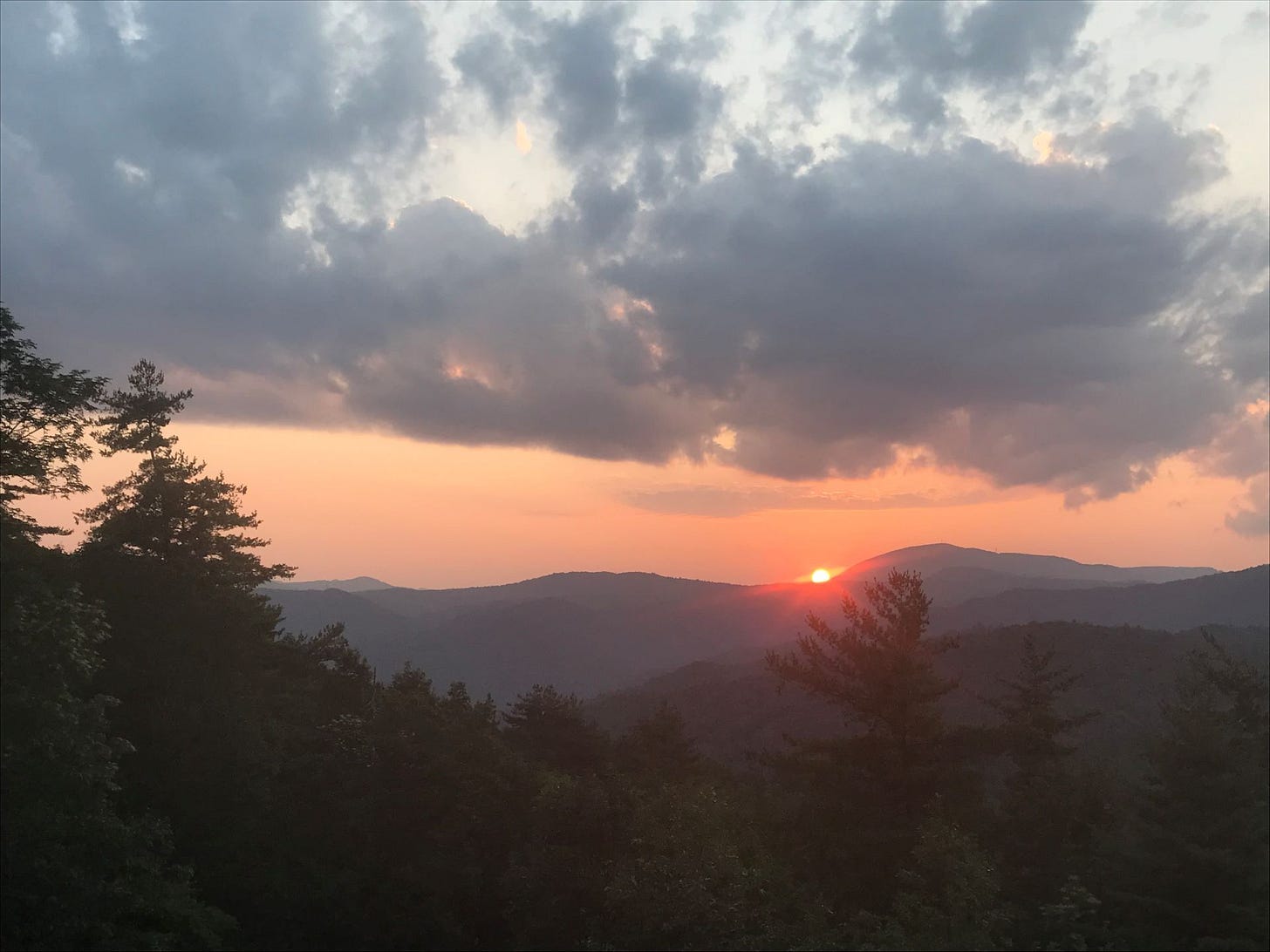Last week I had an opportunity to talk with a man who signed himself up for a digital detox long weekend in the nearby North Carolina mountains in 2015. We’ll call him Tom.
His reason for acting on a friend’s suggestion was not what you might think when you hear the word “detox.” Tom was grieving the loss of his father, who had passed several months earlier.
And while friends were still reaching out to check on him, it was mostly by text, he recalled. Not even phone calls.
He knew he needed community and nurturing
Tom worked in digital media, was single and actively using – and constantly checking – dating apps. He knew he needed to disconnect, so when his friend suggested a detox he knew he wanted to connect with people and the outdoors. He had been to camp as a kid and loved it.
The adult camp he attended employed some innovative rules that effectively stripped people of false personas and locked them in the present moment.
They couldn’t tell anyone their real name. They had to select a nickname for the weekend, i.e. “Star Fighter”
They couldn’t talk about work or what they did for a living
They couldn’t mention time in any context.
Of course, they had to surrender any electronic devices they brought to camp. And to take it a silly step further (this is camp, right?) they had to raise their hand and promise they didn’t have and wouldn’t use any electronics while there.
Lots of community-focused outdoor activities
Tom described the weekend’s well-organized activities – hikes, canoeing, rock climbing, archery and even gospel singing. There was an evening guitar concert, star-gazing, dancing and a talent show. Plus all-camp “color wars” with the required greased watermelon relay game in the lake.
He played “get-to-know-you” games he played with his cabin mates. The first time they sat in a circle and shared something personal about themselves several said they felt a lack of purpose and feeling disconnected from the world.
Sharing their real names at 10:01 am on Monday after camp ended was “surreal,” he said.
3 days of digital detox yields benefits years later
Looking back after eight years, Tom immediately remembered what impacted him the most strongly:
I loved the community aspect. I was tired of the fake intimacy of the digital era. I liked not talking about my job, not having my work define me and not having to present myself in a certain way.
Now a father of two, Tom says he uses airplane mode a lot to unplug and focuses on talking about anything but work.
“It was one of the most rewarding experiences of my life; it was very healing for me.”
Reconnecting with community and reconnecting with Nature are the two biggest reasons why people want to unplug and frankly, need to unplug.
Greased watermelons not required.
Shout out to Jonathan for persevering in finally connecting me with Tom.
So yeah, go wander outside now!
3 Resources for You
I’ve avoided using the term digital detox because it feels too blaming for a condition I don’t believe is entirely within our control, but it’s well understood so I’m reconsidering.
Camp Grounded Tom attended the North Carolina Camp Grounded, which closed after one of the founder’s death from a brain tumor. Current adult camps are held in California.
Digital Detox Guide: 8 Active Ways to Unplug This Summer This guide comes from Bulletproof so be prepared.
DORA Score: A Digital Wellness Assessment This free, 5-minute assessment will measure the impact technology has on your life. Created with mental health professionals, scores range from 0 to 120, with four risk levels of Green, Yellow, Orange and Red. I scored in the Green risk level of little to no concern. Still things to improve but I’m relieved. Definitely recommend. (DORA, BTW, means “DevOps Research and Assessment.”)
Live in each season as it passes; breathe the air, drink the drink, taste the fruit, and resign yourself to the influence of the earth. Henry David Thoreau



